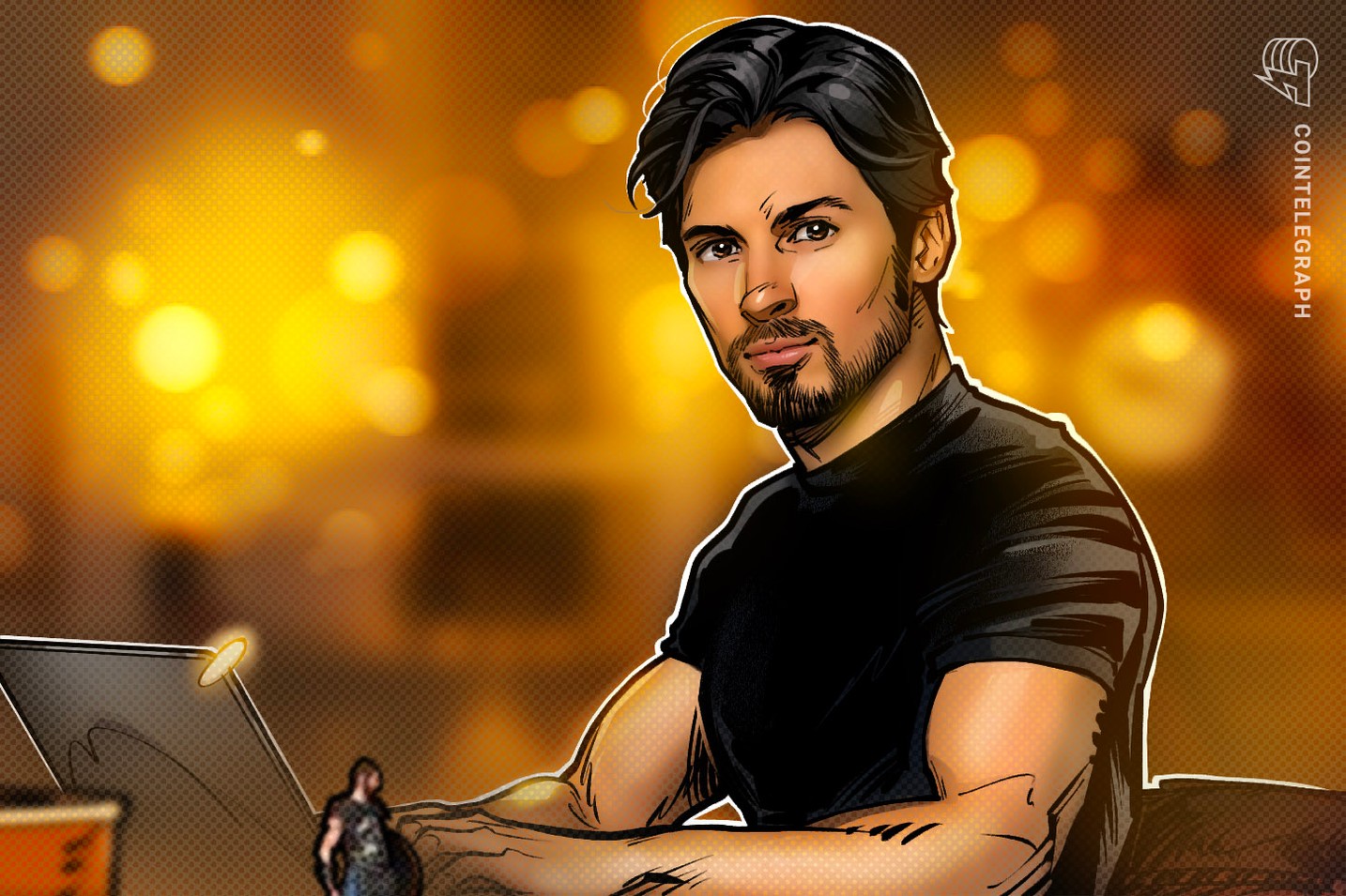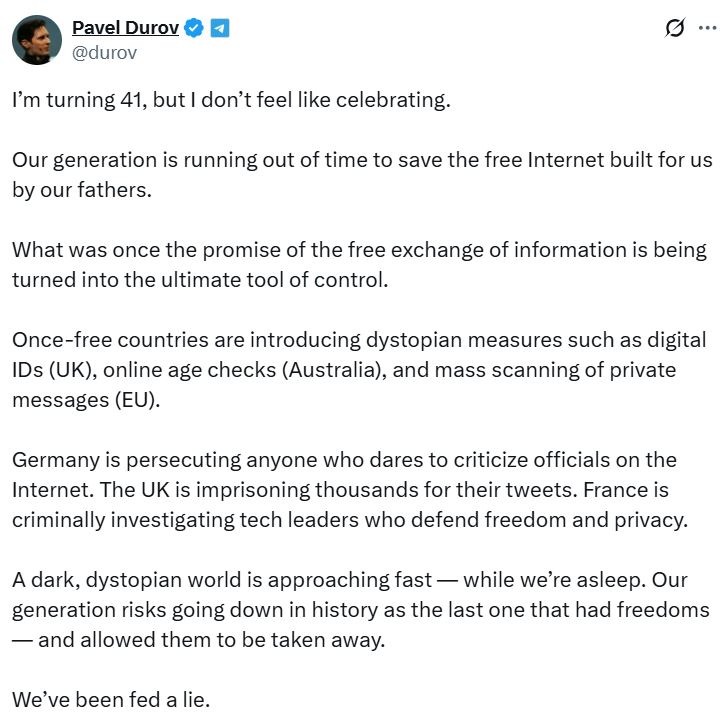
Pavel Durov Warns of an Eroding Free Internet Amidst Growing Government Surveillance
Messaging app founder Pavel Durov expresses concern over the increasing privacy restrictions being implemented by governments worldwide.
The founder and CEO of messaging platform Telegram, Pavel Durov, has raised alarms about an impending dark age for the internet, citing the erosion of privacy rights as governments across the globe tighten their grip.
“Once-free countries are introducing dystopian measures,” said Durov, referencing legislative initiatives like the EU’s Chat Control and the UK’s digital ID system, as well as Australia’s new social media age restrictions.
In a recent social media post, Durov expressed his dismay, stating, “Our generation is running out of time to save the free internet built for us by our fathers.”
Durov criticized the trend of increasing government surveillance:
“Germany is persecuting anyone who dares to criticize officials on the internet. The UK is imprisoning thousands for their tweets. France is criminally investigating tech leaders who defend freedom and privacy.”
He lamented that society risks being remembered as the last generation who experienced freedom only to let it slip away.
 Durov’s Remarks
Source: Pavel Durov
Durov’s Remarks
Source: Pavel Durov
In discussing the EU’s proposal, Durov highlighted the potential consequences for messaging privacy, warning that the amendments would allow government surveillance over encrypted communications.
Meredith Whittaker, president of Signal, emphasized that while Germany’s opposition to the Chat Control is welcomed, the ongoing legislative battle presents dangers that could undermine encryption and security. “These proposals create cybersecurity loopholes that hackers and hostile nations are eagerly waiting to exploit,” she cautioned.
The article also tackled the UK’s digital ID program introduced by Prime Minister Keir Starmer, which is framed as a means to combat illegal employment. Critics fear this could jeopardize individual privacy as personal information would be pooled in a government-controlled app. Over 2.8 million signatures opposing the digital ID have been collected, signaling significant public concern.
In Australia, similar apprehensions arose with proposals for an online age verification system, affording lawmakers the ability to restrict content for underage users. Critics drew parallels between this and the UK’s planned ID system, labeling it as a step towards encroachments on individual freedoms.
